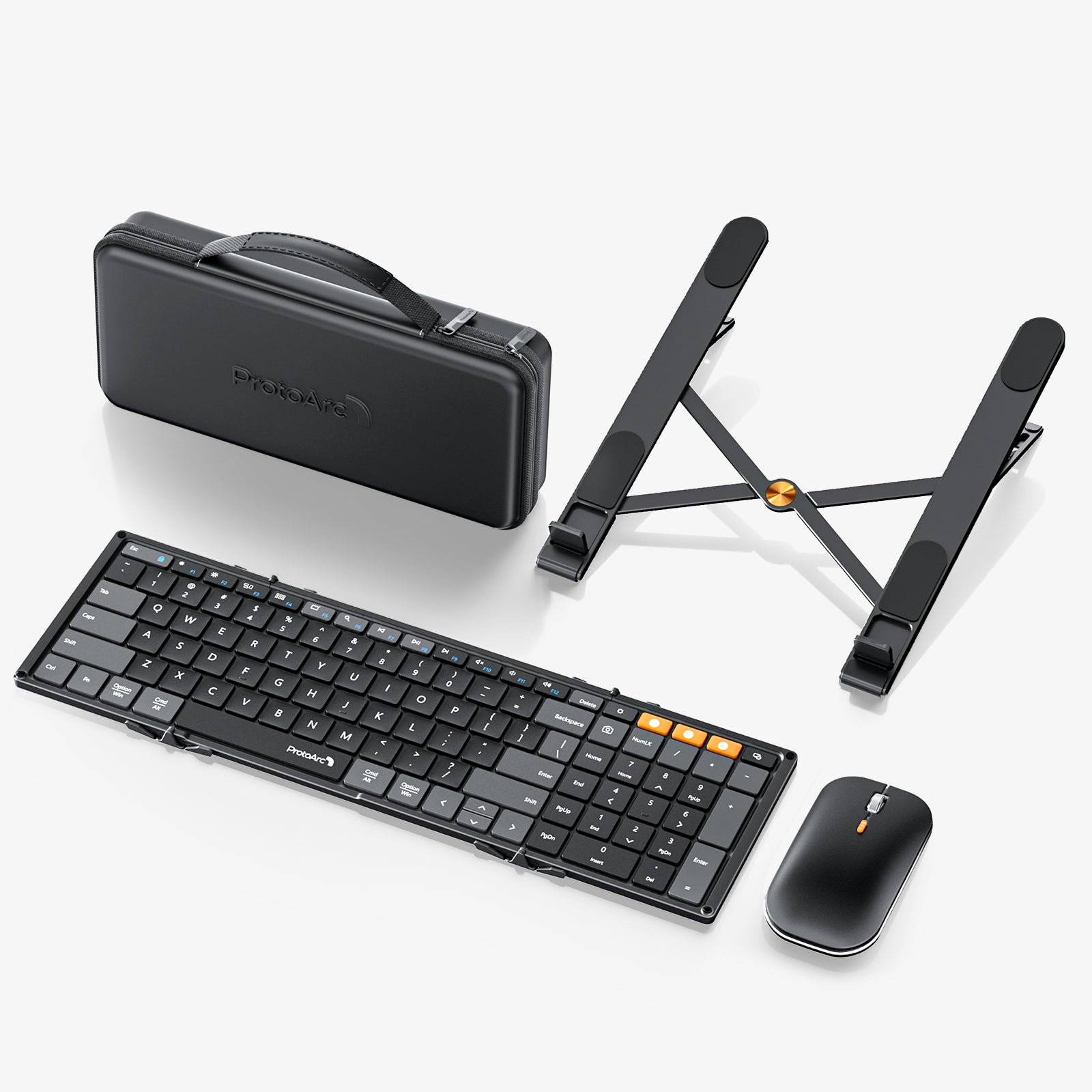Unlock Your Productivity: Discover the Secrets of Choosing the Perfect Wireless Mouse for Your Office!
In today’s fast-paced work environment, productivity is paramount. Office workers are constantly on the lookout for tools that can enhance their efficiency and streamline their daily tasks. One such tool that has gained immense popularity is the wireless mouse. Unlike traditional wired mice that can often lead to clutter and restricted movement, wireless mice offer the freedom to work from anywhere within a reasonable range. This article will delve into the numerous benefits of using a wireless mouse, highlight key features to consider, and provide guidance on choosing the right mouse tailored to your specific office tasks. By understanding these elements, you can make an informed decision that boosts your productivity and ensures a more comfortable working experience.

The Benefits of Using a Wireless Mouse in the Office
The advantages of integrating a wireless mouse into your office setup are numerous. One of the most significant benefits is increased mobility. Without the constraints of a cord, you can easily maneuver your mouse across your desk, or even from your lap, promoting a more fluid workflow. This freedom can be particularly beneficial during meetings or collaborative sessions, allowing you to easily share your screen or navigate presentations without being tethered to a specific location. Additionally, wireless mice help reduce clutter. A clean and organized workspace can significantly improve focus and productivity. By eliminating the need for cables, a wireless mouse contributes to a more streamlined appearance, allowing you to concentrate better on your tasks at hand. Ergonomics is another crucial factor where wireless mice excel. Many designs prioritize user comfort, reducing the strain on your wrist and hand, which can lead to long-term health benefits. By enhancing comfort, wireless mice enable you to work longer hours without discomfort, ultimately leading to improved productivity during your work hours.
Key Features to Consider When Choosing a Wireless Mouse
When selecting a wireless mouse, several essential features should influence your decision. Firstly, battery life is a critical aspect; a mouse that requires frequent recharging can disrupt your workflow. Look for models with long-lasting batteries or those that offer rechargeable options to ensure minimal downtime. Connectivity options are another factor to consider. A mouse that connects via Bluetooth or a USB receiver can provide flexibility, especially if you have multiple devices. DPI settings, which determine the sensitivity of the mouse, can greatly impact your experience. Higher DPI settings allow for faster cursor movement, which can be advantageous for graphic designers or gamers. Conversely, lower DPI settings provide more precision for tasks such as document editing. Finally, ergonomics and design should not be overlooked. A mouse that fits comfortably in your hand and supports your grip style can make all the difference during long hours of use. A friend of mine recently switched to an ergonomic wireless mouse and noted a significant reduction in wrist pain after just a few days of use. This personal experience illustrates the importance of finding a mouse that suits your specific needs.
Battery Life and Charging Options
The longevity of the battery and the available charging options are crucial elements when considering a wireless mouse. Many models now come equipped with rechargeable batteries, which can be a great advantage. These mice often feature a USB-C or micro-USB port for easy charging, allowing you to quickly power up your device during breaks. Alternatively, some wireless mice operate on disposable batteries. While this might seem convenient, it’s essential to keep spare batteries on hand to avoid interruptions during your workday.
Ergonomics and Design
Design plays a significant role in user experience. An ergonomic mouse is specially designed to fit the natural grip of your hand, which helps reduce strain during prolonged use. When selecting a mouse, consider its shape, size, and the materials used. A friend of mine, who used to experience fatigue from using a standard mouse, switched to an ergonomic model and found it significantly improved her comfort level while working. Ensuring that the mouse fits your hand size allows for better control and reduces the risk of repetitive strain injuries.
How to Match a Wireless Mouse to Your Office Tasks
Selecting the right wireless mouse is also about matching it to your specific office tasks. For document editing or general office work, a standard wireless mouse with various DPI settings may suffice. However, if your tasks include graphic design or 3D modeling, you might want to opt for a mouse that offers customizable buttons and higher sensitivity levels, allowing for precise movements and shortcuts that can save valuable time. For those who enjoy gaming during breaks, consider a gaming-oriented wireless mouse that features advanced tracking, customizable controls, and a comfortable grip. Assessing your needs and preferences thoroughly can help you identify the ideal mouse that aligns with your work style, ensuring that you are equipped for whatever tasks lie ahead.
Setting Up Your Wireless Mouse
The setup process for a wireless mouse is generally straightforward. Most models come with a USB receiver that plugs into your computer, or they may use Bluetooth for connection. To set up, simply insert the receiver into an available USB port, turn on your mouse, and it should automatically pair with your computer. If you encounter issues, check the battery levels and ensure that the mouse is turned on. If using Bluetooth, make sure your device is discoverable and that the mouse is in pairing mode. With these simple steps, you can enjoy a seamless experience with your new wireless mouse.
Making an Informed Choice on Wireless Mice
Choosing the right wireless mouse can significantly impact your productivity and overall comfort during office tasks. By considering the benefits of mobility, reduced clutter, and improved ergonomics, along with essential features such as battery life, connectivity options, and design, you can make an informed decision tailored to your specific needs. As you assess your work style and preferences, remember that the right mouse can be a valuable ally in enhancing your productivity and making your office experience more enjoyable. Take the time to find a wireless mouse that works for you, and watch your efficiency soar!







